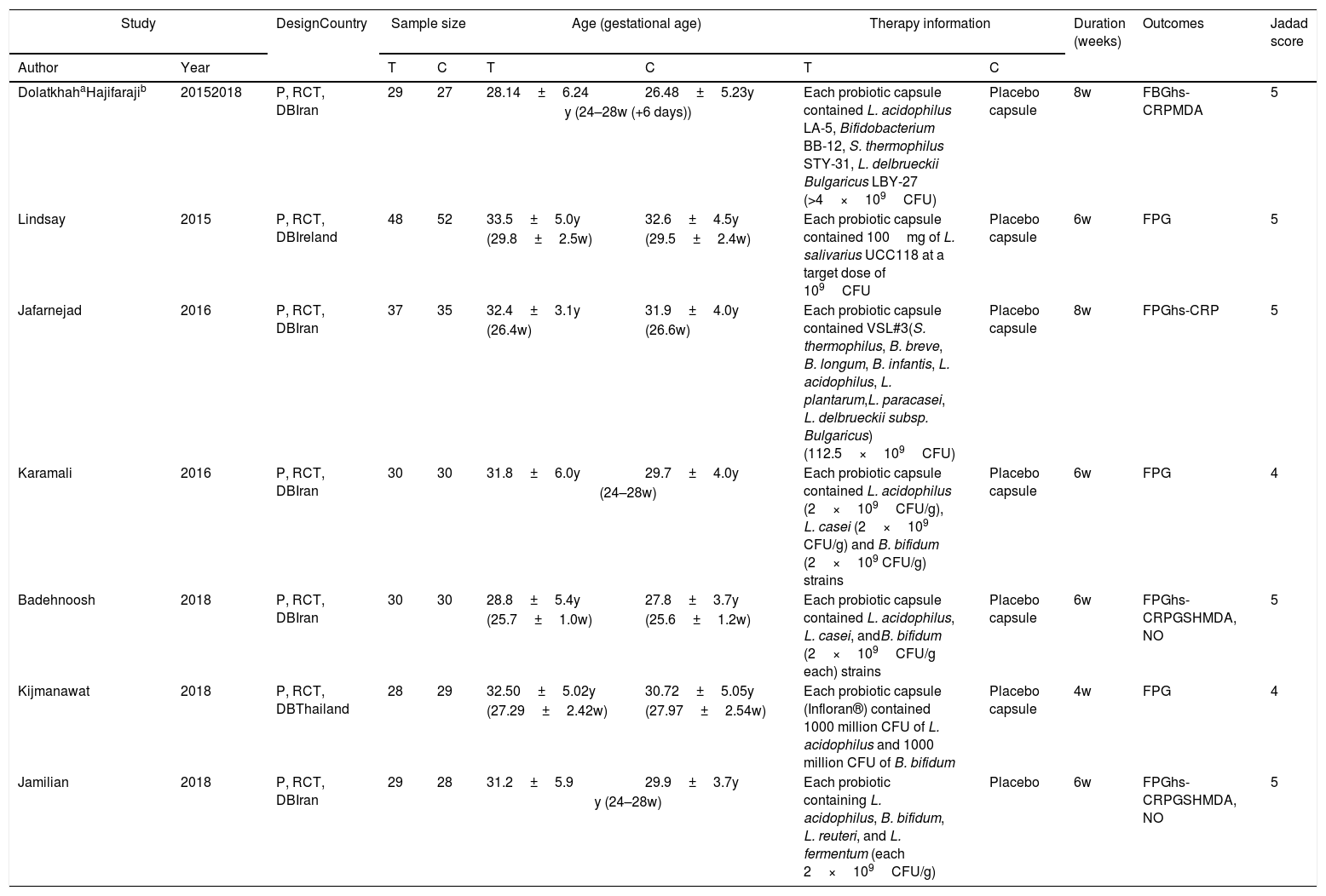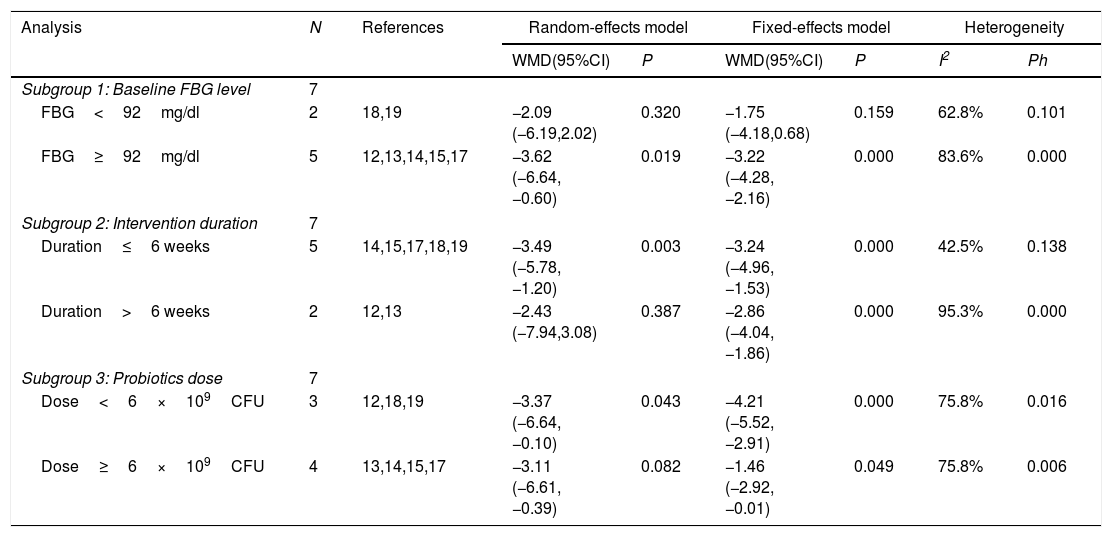The role of probiotics supplementation in gestational diabetes mellitus (GDM) remains controversial. We conducted this meta-analysis to investigate the effects of probiotics on fasting blood glucose (FBG), high-sensitivity C-reactive protein (hs-CRP), total glutathione (GSH), malonaldehyde (MDA) and nitric oxide (NO) levels in pregnant women with GDM.
MethodsWe systematically searched the Cochrane Library, Embase and PubMed electronic databases up to November 2018. A meta-analysis was then conducted using weighted mean difference (WMD) and 95% confidence interval (CI) as effect measures.
ResultsA total of 7 studies were enrolled in the final meta-analysis. Data showed that probiotics reduced FBG (WMD: −3.19mg/dl, 95% CI: −5.55 to −0.82, P=0.008) in pregnant women with GDM. Sub-group analysis suggested that the effect of probiotics on lowering FBG was more significant in patients with a baseline FBG ≥92mg/dl (WMD: −3.62mg/dl, 95% CI: −6.64 to −0.60, P=0.019), a duration of probiotic treatment ≤6 weeks (WMD: −3.24mg/dl, 95% CI: −4.96 to −1.53, P=0.000) and a dose<6×109 colony-forming unit (CFU) (WMD: −3.37mg/dl, 95% CI: −6.64 to −0.10, P=0.043). In addition, probiotics were effective in reducing hs-CRP and MDA in pregnant women with GDM, but had no significant effect on either GSH or NO.
ConclusionThis meta-analysis suggests that probiotics supplementation might have a small effect on the reduction of FBG in pregnant women with GDM, and might have certain effects on some biomarkers of inflammation and oxidative stress. However, given the heterogeneity between studies, the results should be interpreted with caution but are worthy of further investigation.
El papel del suplemento de probióticos en la diabetes mellitus gestacional (DMG) es controvertido. Realizamos un meta-análisis para investigar los efectos de los probióticos sobre los niveles de glucosa plasmática en ayunas (GPA), proteína C-reactiva de alta sensibilidad (PCR-hs), glutation total (GSH), malonaldehído (MDA) y óxido nítrico (NO) en mujeres embarazadas con DMG.
MétodosRealizamos una búsqueda sistemática en las bases de datos electrónicas de Cochrane Library, Embase y PubMed hasta Noviembre de 2018. A continuación realizamos un meta-análisis utilizando la diferencia media ponderada (WMD) y el 95% de intervalo de confianza (IC) como medidas del efecto.
ResultadosIncluimos en el meta-análisis final a un total de 7 estudios. Los datos reflejaron que los probióticos reducían GPA (WMD: -3,19mg/dl, 95% CI: -5,55 a -0,82, P=0,008) en las mujeres embarazadas con DMG. El análisis de sub-grupo sugirió que el efecto de los probióticos para la reducción de GPA era más significativo en pacientes con GPA basal ≥92mg/dl (WMD:-3,62mg/dl,95% CI: -6,64 a -0,6, P=0,019), una duración del tratamiento de probióticos ≤6 semanas (WMD:-3,24mg/dl, 95% IC: -4,96 a -1,53, P=0,000) y una dosis<6×109 de unidad formadora de colonias (UFC) (WMD:-3,37mg/dl,95% IC: -6,64 a -0,1, P=0,043). Además, los probióticos eran efectivos para reducir PCR-hs y MDA en mujeres embarazadas con DMG, pero no tenían efecto alguno sobre GSH ni NO.
ConclusiónEste meta-análisis sugiere que el suplemento de probióticos podría tener un efecto leve sobre la reducción de GPA en mujeres embarazadas con DMG, y podría tener ciertos efectos sobre ciertos biomarcadores de la inflamación y el estrés oxidativo. Sin embargo, dada la heterogeneidad entre los estudios, los resultados deberían interpretarse con cautela, aunque merecen investigación adicional.











